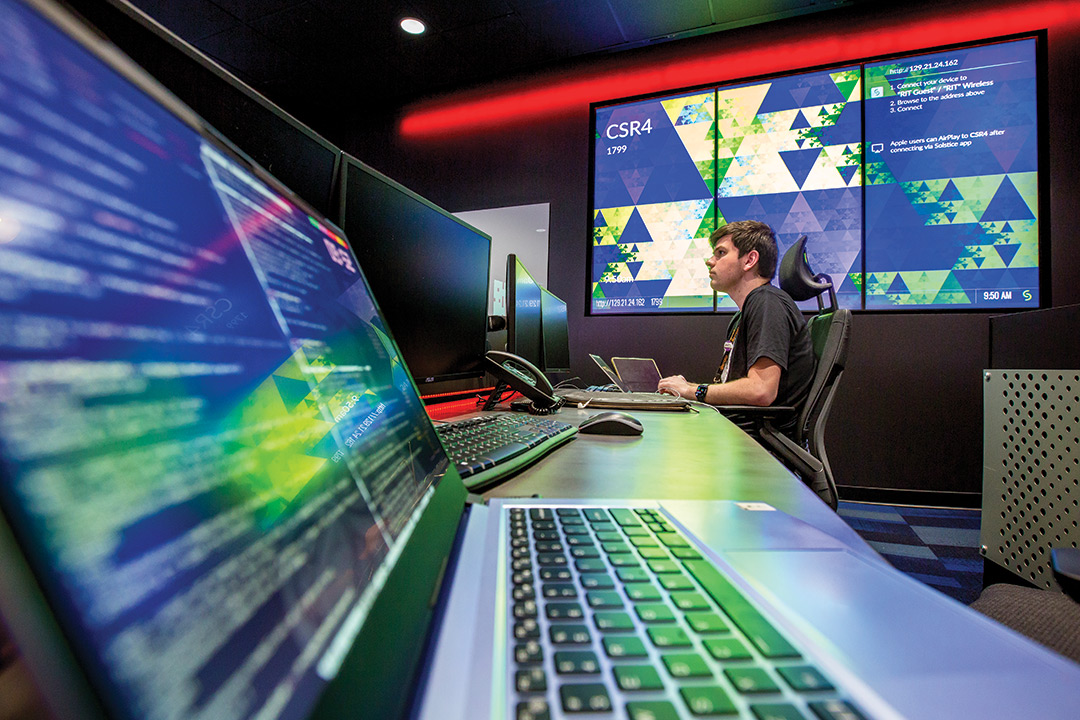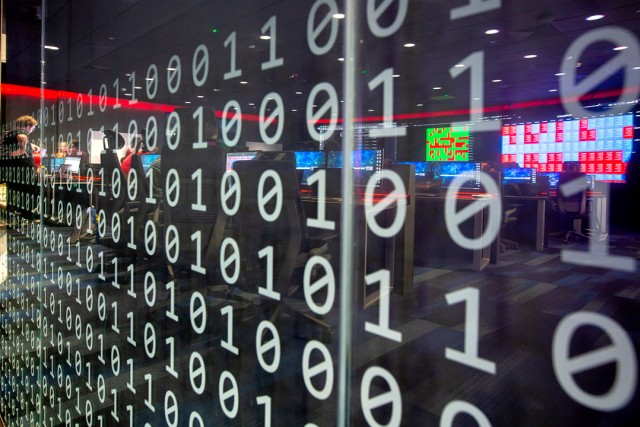Educating future generations in high-tech complex
Carlos Ortiz
Alex Beaver, a second-year computing security major, monitors a large-scale virtualized network during a student-run cybersecurity competition in the ESL GCI Cyber Range.
RIT opened the doors to its world-class home for cybersecurity in 2020, and it’s making the university one of the best places for cybersecurity education, training, and research.
The 52,000-square-foot ESL Global Cybersecurity Institute (GCI) adjoins the university’s computing college.
It aims to help make the digital world safer and solve a problem currently plaguing the cybersecurity field—employers can’t find enough qualified professionals to hire.
The building has new computer labs, teaching spaces, and a conference center.
For example, the Air Gap Lab gives students the ability to work with dangerous malware, while staying safely sealed off from the rest of campus and the internet. In the Eaton SAFE Lab, students and professionals are hired to conduct real penetration tests for companies.
At the heart of the ESL GCI is the Cyber Range and Training Center—a virtual and physical lab that allows people to simulate network cyberattacks and problem-solving scenarios. Here, the institute offers immersive training sessions for organizations to generate the real-world feeling of responding to a cybersecurity crisis.
With the ESL GCI, RIT has been able to expand its nationally recognized computing security degree programs and focus on new research areas in cybersecurity. The building has dedicated space for the university’s cybersecurity club, RITSEC, and for students enrolled in the NSF’s CyberCorps: Scholarship for Service program.
The hall has also allowed the university to host computing security competitions for students, including the global finals of the Collegiate Penetration Testing Competition. At the event, students put their hacking skills to the test—seeing who is best at breaking into fabricated computer networks, evaluating their weak points, and presenting plans to better secure them.
This story is part of the 2023 President’s Annual Report. Read more stories from the report.


